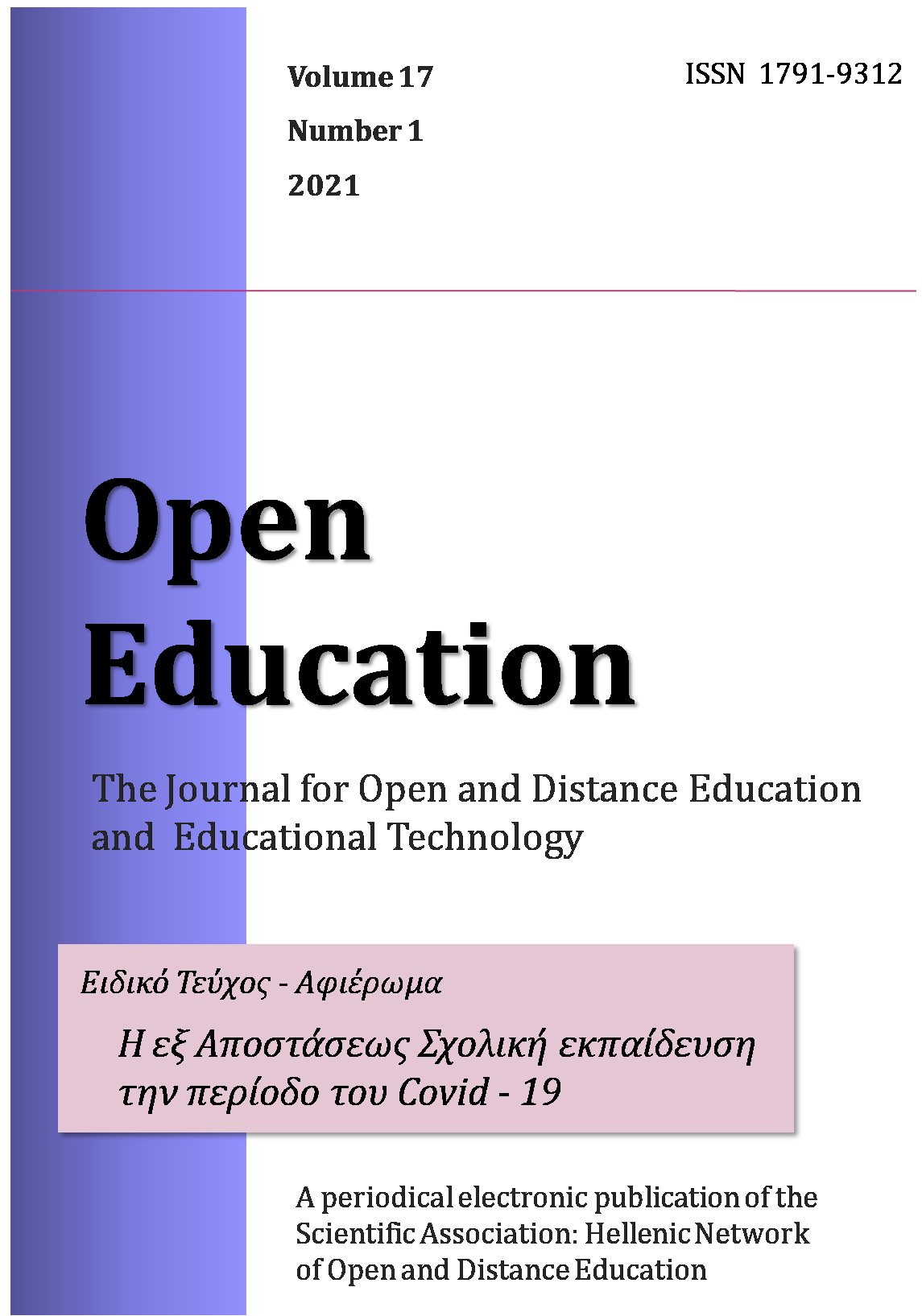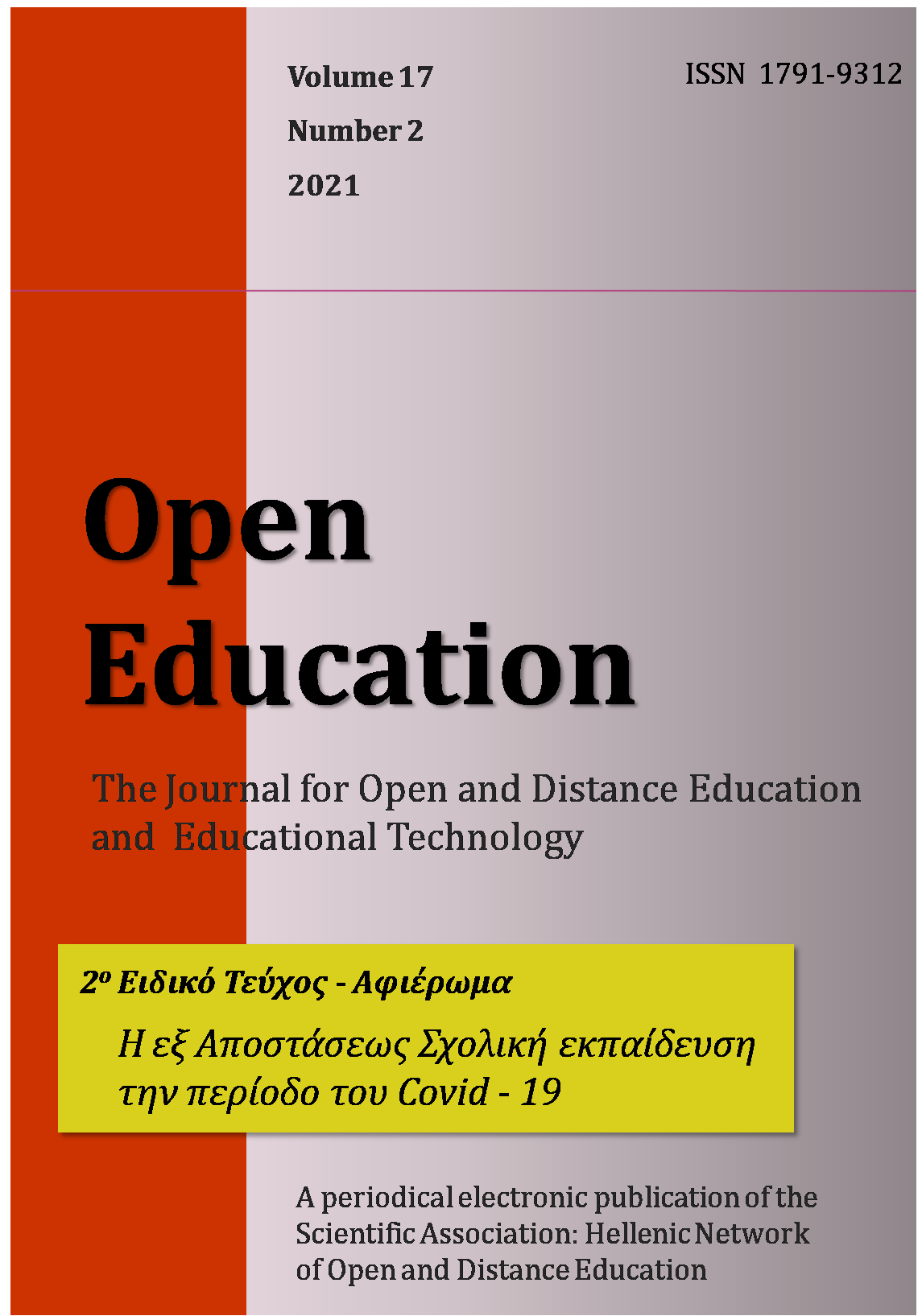Η διαδικτυακή μάθηση στην εποχή του Covid-19: Μελέτη περίπτωσης των στάσεων των σπουδαστών της Ακαδημίας Εμπορικού Ναυτικού
Abstract
Η εξάπλωση του covid-19 ανάγκασε τις περισσότερες χώρες να επιβάλουν υποχρεωτικά προσωρινό κλείσιμο των ιδρυμάτων τριτοβάθμιας εκπαίδευσης, με τη διαδικτυακή εκπαίδευση να προτείνεται ως λύση ανάγκης για τη συνέχεια της εκπαιδευτικής διαδικασίας. Σε αυτό το πλαίσιο, ο στόχος αυτής της μελέτης είναι να διερευνήσει τις στάσεις και τις απόψεις των σπουδαστών της Σχολής Μηχανικών της Ακαδημίας Εμπορικού Ναυτικού στη Μηχανιώνα Θεσσαλονίκης σχετικά με την εφαρμογή διαδικτυακής εκπαίδευσης κατά τη διάρκεια της πανδημίας covid-19. Η έρευνα διεξήχθη προς το τέλος του εαρινού εξαμήνου 2020 με ερωτηματολόγια σε 597 σπουδαστές και για τον έλεγχο των υποθέσεων χρησιμοποιήθηκε περιγραφική στατιστική και έλεγχος x2. Τα αποτελέσματα έδειξαν ότι η προσαρμογή των σπουδαστών στο νέο τρόπο διδασκαλίας εξαρτάται από το εξάμηνο στο οποίο βρίσκονται και από τα τεχνικά προβλήματα που πιθανόν αντιμετώπισαν. Επίσης εντοπίστηκε ένα αξιοσημείωτο φαινόμενο, ότι οι σπουδαστές που είχαν ικανοποιητική επικοινωνία με τους καθηγητές και τις καθηγήτριές τους είναι λιγότερο επιφυλακτικοί στο να καθιερωθεί η τηλεκπαίδευση ως τρόπος διδασκαλίας. Τέλος, παρόλο που συμφώνησαν ότι η διαδικτυακή μάθηση ήταν η σωστή λύση κατά τη διάρκεια της πανδημίας, τη βρήκαν πιο κουραστική από την παραδοσιακή εκπαίδευση και οι περισσότεροι σπουδαστές δεν είναι αρκετά ευχαριστημένοι από την εφαρμογή της.
Article Details
- Zitationsvorschlag
-
- Ausgabe
- Bd. 17 Nr. 1 (2021)
- Rubrik
- Μέρος πρώτο / Section 1




